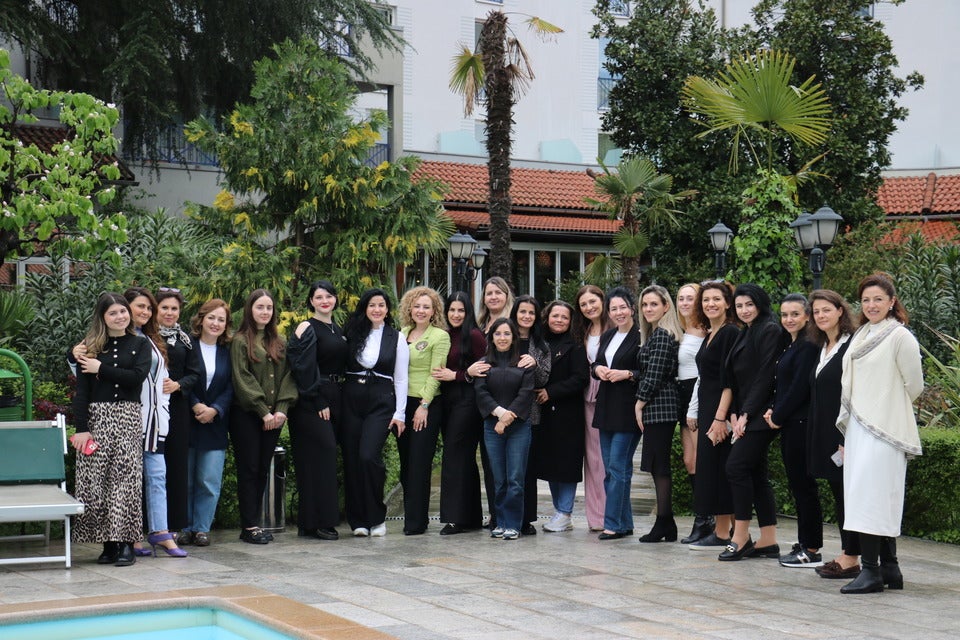Empowering Women Leaders: Toward Greater Political Representation
Date:

Women in Albania have long been the backbone of their communities; leading businesses, advocating for social change, and shaping the future in countless ways. Yet, when it comes to political leadership, their presence remains limited. Women currently hold 50 of the 140 seats in the Albanian Parliament. and only 8 of the 61 municipalities are led by women. Despite their potential, women continue to face systemic barriers that hinder their full participation in politics. Social norms, financial constraints, and limited access to political networks often make it difficult for women to step into leadership roles. But change begins with opportunity.
Recognizing these challenges, UN Women in Albania, with financial support from the Swedish Government organized a series of training sessions across Albania to support aspiring women leaders. More than 130 women and girls from across Albania came together to build leadership skills, share experiences, and gain the tools they need to engage in politics.
These training sessions were led by a group of 14 accomplished trainers, women and men from diverse fields such as academia, communication, law, and civil society, who had been certified during a five-day Training of Trainers held in September 2024.
For Andriola Kambo, from the Union of Albanian Municipalities in the Region, the training offered not just knowledge, but a pathway to independence. "I saw this training as an opportunity to become financially independent as a candidate, while fostering a fresh approach to attracting donations and building support," she shared.
Jona Leka, a cardiologist from Gjirokastra, highlighted the importance of solidarity among women in politics.
"This training is more than just learning; it’s about connecting with other women who are strong allies and building the support we need for what comes next."
The training sessions focused on core political skills such as public speaking, campaign organization, leadership, and voter engagement strategies. Through hands-on exercises, participants honed their ability to communicate effectively, understand legislation, and craft messages that resonate with voters. For Valeria Bardhaj, a communications expert, these insights were invaluable.
“This experience helped me understand legislation more deeply and showed me how to engage more effectively with voters and deliver a clearer message”, Valeria Bardhaj highlighted.

While the trainings marked important progress, a significant gap remains: the voices of women from vulnerable communities are still missing at the table.
“Throughout this journey, our greatest challenge has been ensuring greater participation from underrepresented groups in our trainings,” noted Irena Shtraza, Project Coordinator at UN Women Albania. “We remain committed to breaking down barriers and ensuring that all women, regardless of background, have the opportunity to participate actively and be well-represented at both local and central levels."
These training sessions were organized in collaboration with the Albanian Central Election Commission demonstrating the collective effort needed to increase women’s leadership and participation in public life. As more women gain the skills and confidence to step into political leadership, the hope is that the future will see greater female representation at every level of decision-making. More women in politics means more inclusive policies, stronger communities, and a society where all voices are heard.